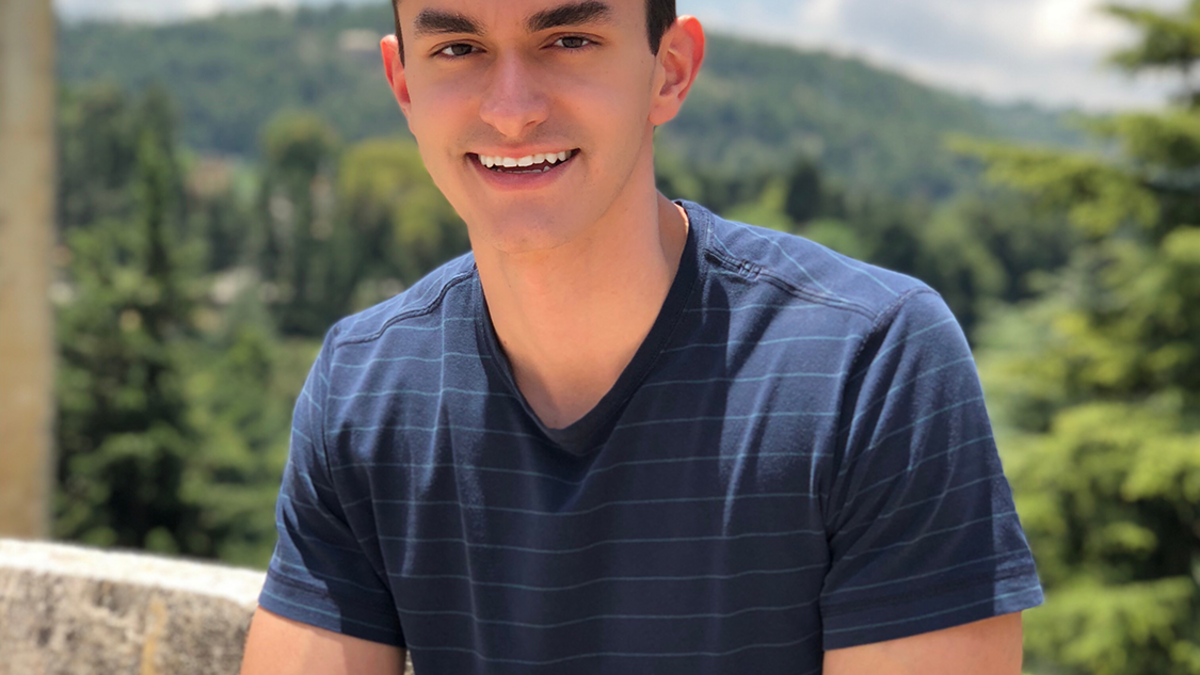Computer-loving graduate programs his future to impact health care

Basam Alasaly
Editor's note: This story is part of a series of profiles of notable spring 2021 graduates.
Up all hours, late into the night, Basam Alasaly has spent the past five years modifying apps, writing code and developing medical technology without pay, first while earning his Bachelor of Science in biomedical informatics, and then as a master’s student in the same program at the College of Health Solutions.
Why spend all that time working so hard for no compensation?
“I want to explore as much as I can while I can. I might run into something that will become my future,” he said.
Computers and health both figure into the future Alasaly envisions. “I want to invent something related to medicine,” he said, such as a new software program, or maybe a clinical support tool that uses artificial intelligence to help health professionals make optimal medical decisions about their patients’ care.
He already has a head start on his dream, having worked on such projects during his undergrad days, starting with an application called LeukApp for the nonprofit hospital system HonorHealth which involved working with professional Phoenix-area developers. Clinicians input patient test results and risk factors into LeukApp which then recommends treatment options.
Alasaly has put his skills and passion to work on many projects like LeukApp. In this past year alone, he built a web crawler that collected online COVID-19 data for a predictive modeling initiative. He also created automated mini-tutorials for fellow ASU students, developed an automated scheduling program for students in classes with clinical requirements, helped plan a workshop on an emerging informatics standard, and provided tech support for classes — all while serving as a graduate teaching assistant and working on the master’s degree he will complete this spring.
One reason Alasaly had time for all this volunteering is because he earned tuition support through the New American University Scholar Provost's Award each year he was an undergraduate. As a master’s student, he also received tuition support and a stipend for conducting research into blockchain, a highly secure digital ledger technology.
“A medical device manufacturer wanted to implement blockchain to track medical devices,” he explained. “These devices sit on their shelves for months, and sometimes they expire.” With blockchain, the manufacturer can track the devices and have sales reps proactively replenish them, thereby improving patient safety and outcomes.
After graduation, Alasaly plans to keep writing apps and code that will support care providers and their patients.
In this Q&A, Alasaly looks back at his ASU experience:
Question: Why did you choose ASU?
Answer: It was close to home and offered everything I wanted, whether I wanted to pursue medicine or computer programming.
Q: What was your “aha” moment when you realized you wanted to study biomedical informatics?
A: I wasn’t sure if I wanted to go the medical route or the computer programming route. After exploring the vast list of majors at ASU, I ran across biomedical informatics, and it immediately grabbed my attention. The human body is very complicated, and there are a lot of issues we simply can’t solve with our brains alone. Genomes, for instance, contain billions of characters. Analyzing that without a computer could take years.
Q: Which professor taught you the most important lessons while at ASU?
A: I learned many valuable lessons while at ASU, but the professor who contributed the most to my learning would most definitely be College of Health Solutions faculty member Dr. Anita Murcko. She was more than a professor and a project manager. Dr. Murcko taught me aspects of project management, software engineering documentation, how to be a professional and many other valuable lessons that I will surely benefit from in my future career.
Q: What’s the best piece of advice you’d give to those still in school?
A: Always ask your professors what projects they’re working on. You never know what you could have been a part of if you don’t ask.
Q: If someone gave you $40 million to solve one problem on our planet, what would you tackle?
A: I would study electronic health records for a year and bring together a team of physicians and software engineers to construct an EHR system with a simple, intuitive user interface. Right now, these systems are hard to use. Clinicians pretty much hate them. It’s an obvious area of improvement needed in health care.
Q: What are your plans after graduation?
A: I plan on attending Thomas Jefferson University’s two-year pre-professional program. I learned the technical possibilities in health care as much as I can from ASU, and now I want to expand on medicine and biology with the ultimate goal of improving public health with technology. The program at Thomas Jefferson lets students choose to spend one or two years to complete required pre-medical school courses, along with MCAT training and health care volunteering opportunities to enhance resumés for medical school applications. I’m doing the two-year program because I’ll have more time to volunteer and work on more apps.
More Health and medicine
ASU team part of nationwide study looking at Type 2 diabetes in youth
Near the end of an interview in which he talked about the work his team will be doing to tackle the rise in Type 2 diabetes among…
Leading the way in wellness: ASU highlighted in The Princeton Review's 2025 Mental Health Services Honor Roll
Being a college student isn’t easy — navigating new routines, people and places can be a challenge, especially if the right…
New Indigenous health dashboard offers robust database for scholars
By Nicole Greason and Kimberly Linn A team at Arizona State University’s College of Health Solutions and …